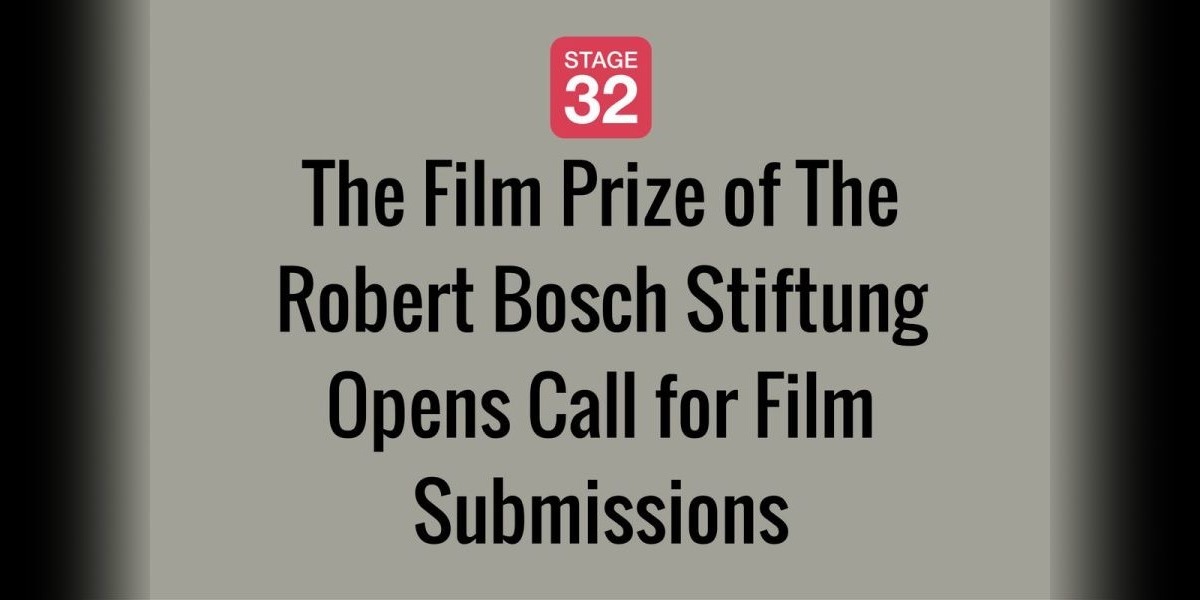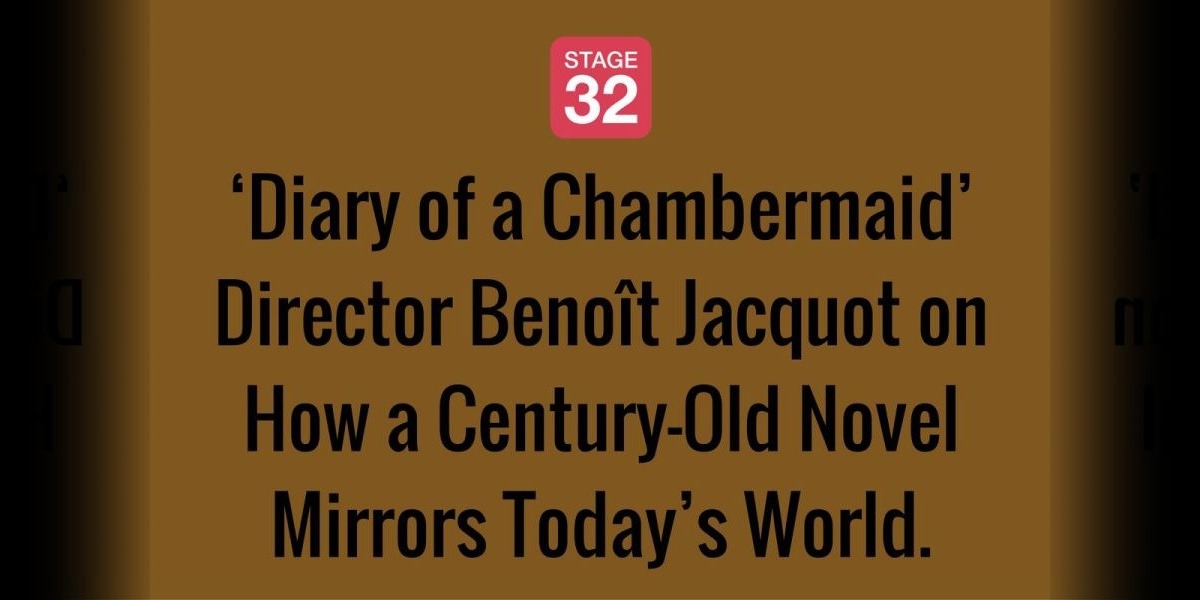‘Diary of a Chambermaid’ Director Benoît Jacquot on How a Century-Old Novel Mirrors Today’s World.
Conceived at the dawn of the 20th century and shaped by the outburst of influences during that transitional period, Octave Mirbeau’s novel about a young and defiant Parisian house keeper who refuses to fully surrender to a life of servitude working for wealthy French families in the provinces, ignited the cinematic passions of celebrated auteurs such as Renoir and Buñuel, each of whom adapted the provocative piece with their own sensibilities. Now, nearly 50-years after the last screen iteration, director Benoît Jacquot (“Farewell, My Queen”) has created his very own interpretation of “Diary of a Chambermaid” that thrives on the timeless themes recognized both in today’s troubled world and that which the leading chambermaid inhabited in the century-old pages.
His Cannes-winning cast includes Léa Seydoux and Vincent Lindon, play along in this cheeky yet often dark tale of power struggles, class, dignity, and the dangerous ideologies that were brewed in France at the time. Seydoux, who plays Célestine, captures a woman trapped in a reality that asks submission when she yearns for agency, thus she finds hope and the possibility of revenge in the twisted rhetoric of Lindon’s character, another employee with much more belligerent ideals — the very same the filmmaker believes echo the current state of humanity.
We recently chatted with Jacquot about his interest in rekindling Mirbeau’s classic for the new millennium and his the cinematic grammar used in its execution.
Carlos Aguilar: Given that two other filmmakers had already created film adaptions of this novel, why did you feel you could create a distinct version that matched your interests?
Benoît Jacquot: First of all, I’ve seen both Buñuel’s and Renoir’s versions, and the fact that this was a novel that had attracted the interest of great filmmakers in a very singular way was really a sign to me that there was something inherent in the book that was worthy of attention. The fact that the two films, Renoir’s and Buñuel’s, are so very different from each other really made me think that I also could make a version of it that would be just as individual and just as different from the other versions that had already been made.
Also, the book itself evokes certain themes that I’ve tried to deal with in most of my films. More specifically the thing that interested me is this idea of following a particular female character as she attempts to try to escape the position and the situation in which fate and society have put her. Another thing is the echo of the situations and the events that were present at the time that the book was written, which was at the start of the 20th century, and the resonance these could have with the situations happening when the film is being made, which is the beginning of the 21st century.
Aguilar: Célestine, the protagonist, is a conflicted character in a world that want to keep her down. What specifically about her experience appealed to you as a director?
Benoît Jacquot: I think what’s interesting for me about her character is the fact that you have this woman who feels continuously that she is someone who is not in her own place. She doesn’t feel that she can live in the place that society or her birth has put her in and she is trying to find a way out of this.
Aguilar: What qualities does Léa Seydoux share with Célestine that inspire you to cast her? Or was it perhaps how different they are that attracted you to her?
Benoît Jacquot: In a sense Léa doesn’t really share this characteristic with the character that she plays because unlike that character Lea is doing exactly what she always wanted to do in life. In that sense she is not representing something that she herself has experienced. On the other hand, I think there is a kind of a gap between what we are experiencing and what is actually happening. It’s something that in a sense all of us have to deal with and I think that all actors and actresses are playing, acting, and showing situations that reflect this in all of us. All of us have it, the question is what is the reality of life and what is real. Should the reality that she is experiencing be different from reality as truly it is?
Aguilar: Your film has a very different ending that what’s written in the novel. Célestine’s fate in your version is less straightforward. Why did you choose to end it this way?
Benoît Jacquot: I chose not to end the film how it ends in the book, where she becomes the oppressor, because it was just a little too convenient an ending and not particularly convincing. It’s a very amusing ending in the book, but it’s not convincing. I prefer endings that are open and ambiguous rather than have endings that are very conclusive.
Aguilar: The visual language in “Diary of a Chambermaid” includes a lot of zoom-in shots that are not often seen in period films. Can you talk about this decision?
Benoît Jacquot: That was actually a very specific choice I made because that type of shot lends a kind of speed and a kind of briefness to movement that really makes things seem immediately present and that’s something that’s very important when you are filming a period piece.
Aguilar:There is also the use of voiceover to narrate the film through her point of view, which as times transforms into spoken words that are directed towards the audience. What was the specific reason for the use of this element?
Benoît Jacquot: When I was beginning to shoot the film I actually had a lot more voiceover and narration, and I thought there was too much. What happened when there was to much was that there was a distancing effect and so it was making her much more distant from what was happening to her in the film. I cut out a lot of it and then I felt maybe I had cut out a bit too much and I put some back in because you really need to hear her voice. You have to have her voice and her comments on how these experiences relate to her and how she connects them to her own self.
Aguilar: Célestine lives in a society ruled by men and their desires, what’s your perception of the masculine presences in the story in relation to the protagonist?
Benoît Jacquot: Masculine humanity as it appears here is very much a reflection of how it was portrayed in the book and I chose not to change it in any way. Masculine humanity here has proven to be disastrous. She finds herself living in this nightmare that’s been created by masculine humanity and hoping she will be able to wake up from it.
Aguilar: This is a century-old novel that resonates with a lot of the struggles humanity faces in this day and age. Why do you think some of these notions are timeless and are still relevant today?
Benoît Jacquot: The interesting thing here is that what’s happening in this particular story is reflecting what really happened at the beginning of the 20th century where you had a lot of new ideologies, new political movements, new cultural movements, all the things that ultimately came to define the 20th century began to take shape at this time. In a sense we thought that we were over with a lot of these things right after WWII, but I think history has shown us that this is isn’t the case and that there are certain things that are happening now, for example, anti-Semitism, which we see in this book. We can really say that modern anti-Semitism is a creation of the French because after the time of Dreyfus, which is when this book was written, there is now a resurgence of many of these same ideologies and ideas accompanied with the kind of violence that unfortunately is attractive for a lot of people. It’s something very disturbing, and what is happening today really is mirrored in the book.
Cohen Media Group’s “Diary of a Chambermaid” is now playing in LA and NY.
About Carlos Aguilar for SydneysBuzz
Originally from Mexico City, Carlos Aguilar developed an all-consuming passion for storytelling at a young age influenced by American classics and his mother’s love for European cinema. Evidently, film became the obvious answer to his need to translate words into visual artistry. His drive to find his path in this complex world has taken him to pursue endeavors in diverse circles within industry, including producing his own short films, serving as an intern for the distribution company Strand Releasing and the renowned Sundance Institute, and writing for several online publications. In his capacity as a film journalist he has written for important outlets such as Indiewire, SydneysBuzz, Movie Maker Magazine, Creative Screenwriting, and Variety Latino. In 2014, Carlos Aguilar was chosen as one of 6 young film critics to partake in the first Roger Ebert Fellowship organized by the Sundance Institute and Indiewire. His multi-faceted relationship with cinema provides him with a well-rounded understanding of the medium as an art form and a business. Whether interviewing internationally acclaimed filmmakers, covering screenplays, or reviewing the latest independent gem, his passion for film is always indelible.
Like this blog post? Please share it on social media (Facebook, Twitter, LinkedIn, email etc) by using social media buttons at the top of the blog. Or post to your personal blog and anywhere else you feel appropriate. Thank you.
As always, we welcome thoughts and remarks on ANY of the content above in the Comments section below...
| The Film Prize of The Robert Bosch Stiftung Opens Call for Film Submissions |
| When A Mediamaker Should Engage An Entertainment Attorney |
Search Stage 32 Blog
There are now 3681 blog posts for you to enjoy. Search them all by tags below.
Acting, Advice, Cinematography, Coffee & Content, Composing, Contests, Distribution, Featured, Filmmaking, Financing, Inspirational, Networking, Producing, Screenwriting, Success Stories, Tips, Trending,Relevant Tags
Recommended Articles

Coffee & Content: In Praise of Great Exposition & Pitching Experiences

7 Lessons I Learned From Film Festival Rejections

Coffee & Content: Reframing Rejection as Part of the Journey

Advice For Screenwriters From An Award-Winning Producer & Repped Screenwriter

Stage 32 Founder & CEO Richard "RB" Botto Featured in Grey Journal: Highlights From AFM 2024!

Announcing the 10th Annual Short Film Contest

Coffee & Content: Traits You Need To Succeed In The Entertainment Business

Embracing Unexpected Opportunities In Your Career

November Write Club Week #4: Congratulations, You Got Through the Door! How Are You Keeping it Open?






